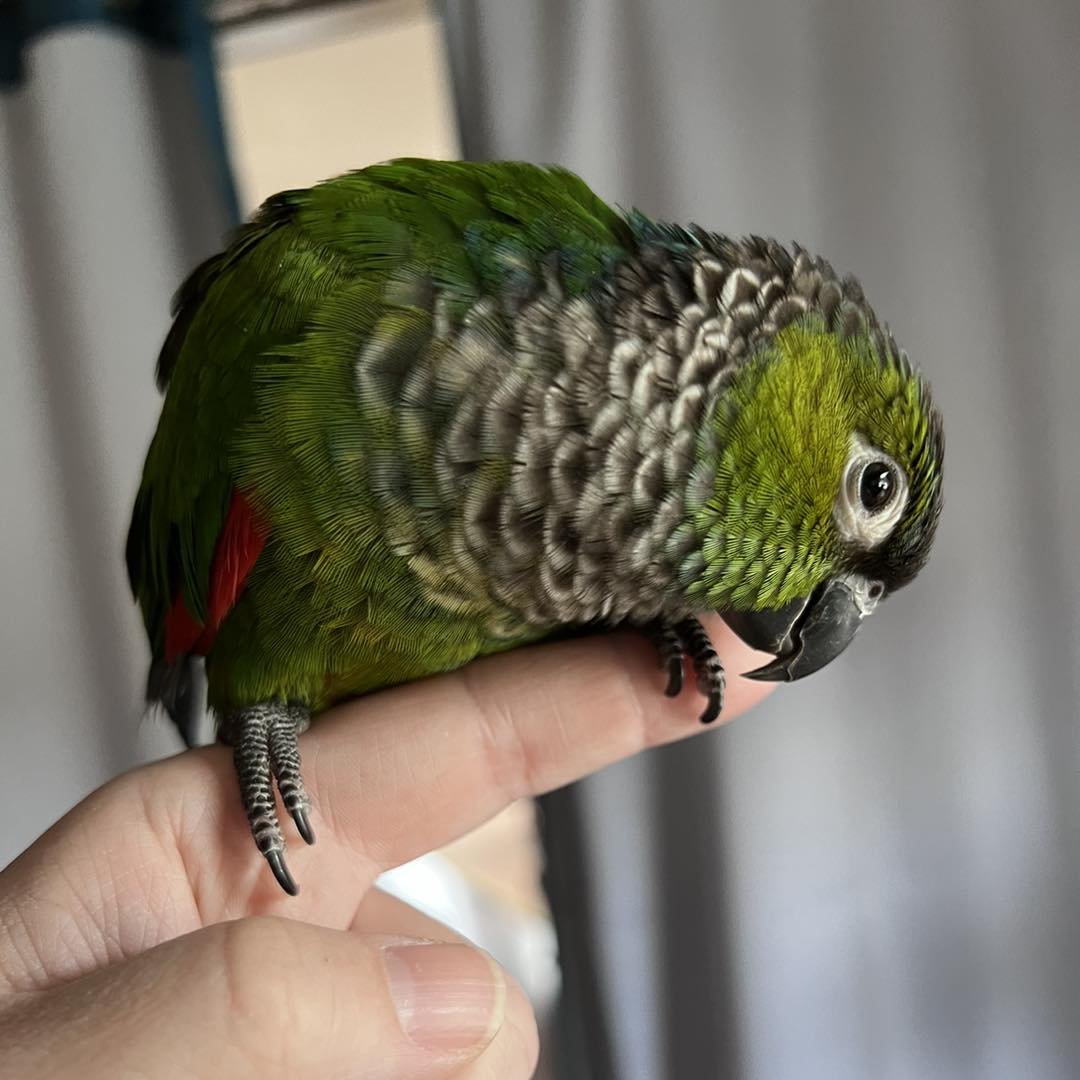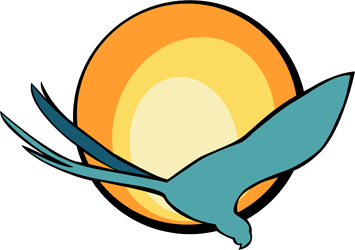
Frequently Asked Questions
Do you have any [species] available?
The best place to check for available birds is either my BirdBreeders.com profile or my Facebook! I will do my best there to update when birds are reserved and when they are available.
What species do you breed?
Check my breeding programs page for the species I primarily work with! My focus is on South American species, mainly conures, macaws, and pionus, but I do work with others or may get others at times.
Where are you located? Do you ship?
I am located in Port Angeles, WA. I do ship via Delta Cargo to your nearest major airport! Prices are currently $250 for 1-2 small birds, $350 for large macaws. I will meet for free within 50 miles of Port Angeles. I am also able to offer longer distance transport (within reason) for additional fees.
I will not ship via USPS under any circumstances.
What are some things to know about shipping?
Due to increasingly stringent requirements levied by Delta, pickup time options may be very limited. As well, the airport is more than 2 hours from me, so I usually only ship on a given day so all my shipments go out together. I can do a special day for your bird on request, but there is an added $50 fee. Thank you for understanding. Your patience and flexibility on flight schedules is greatly appreciated!
Is shipping stressful to the bird?
In a brief word: No.
Pets DO NOT travel in the cargo area with suitcases under the plane as many people believe. There is a separate area for them and other sensitive shipments that is pressurized and climate controlled.
In addition, I take many measures to ensure a bird is comfortable traveling, including habituating them to carriers and making sure they have plenty of snacks, a perch, and comfy bedding. The carrier is set up to stay dim and reassuring to the bird(s) in transit. For longer transits east, I try to schedule them so they are flying at night, when they will sleep and relax the most. My birds arrive not a feather out of place!
Is shipping a bird risky?
There is always some risk shipping a bird, but there is also a risk driving a bird to you, or you coming and picking one up (in fact, you are statistically more likely to have an accident driving than flying, and this goes for the bird, too). These risks though are very low and can be reduced with proper care. However, should something happen to your bird in transit, I will do all I can to make it right!
Do you disease test?
All parent birds here must test negative for polyoma, PBFD, and bornavirus before being paired up and provided a nestbox. The few babies brought in from other sources are tested for those viruses under quarantine. Any baby not already tested may be individually tested for those diseases and others at buyer’s expense.
Can I get an unweaned bird to feed myself and save money?
I do not offer unweaned birds to the general public. The only exception will be if you are a free flyer and can show me proof that you have experience both in hand raising and free flight. Unweaned birds carry NO health guarantee under any circumstances and will not be cheaper than weaned ones.
Can I come see your birds or visit a bird I’ve reserved?
The short answer is no, and I will not make exceptions on this. There are many reasons:
Visitors can disturb breeding pairs, for one.
I work from my own home, and I am not set up like a pet shop and therefore do not have the staff and resources to maintain the hours for people to come and go.
Biosecurity (disease prevention) is a factor as well. People can bring diseases in on clothing, hair, hands, etc. that pose a risk to my birds.
There have also been many instances of birds being stolen due to their increasing value and I don’t want to put myself or my babies at risk for that.
I appreciate your understanding on this.
Do you take payment plans?
I take a deposit for un-weaned birds, and then the rest is due when they are weaned, BEFORE I release/ship the bird to you. If you need financing, I now offer AfterPay via Square invoice, and of course I can accept credit cards. I send you an invoice, and you go through the process to apply for the payment plan with AfterPay. I charge a 10% fee for this service. The APR and other fees AfterPay charges are not something I can predict for you; you will have to find out what rates you are offered when you apply. For credit cards, I charge a 3% fee to cover transaction fees.
Can I get a discount?
The price I ask is the price I will accept. It represents the hard work and care I have put into raising, socializing, and training (yes, training!) your new companion. I do not cut corners on food, behavior, housing, enrichment, veterinary care, or anything else. You get what you pay for!
I do offer a special for free flyers, however (check the next question).
What is your free flight special?
I offer a small discount on birds going to free flight homes (free flight is defined as flying a properly trained bird unrestrained in an outdoor area). Usually around 10% off base price, but it varies. To qualify, the following conditions must be met:
You either have a certificate of completion of a free flight class, OR you can provide me video and photos of your current birds flying and recalling successfully outdoors, unrestrained. Linking to a social media account with a decent history of media is the best way.
The bird must be an appropriate species and color mutation to free fly. For instance, I will not offer this deal on lutino duskies, as they are not equipped to free fly with their small size, light color and pink eyes. Wild type (green) duskies though are fine!
Demonstrate superior husbandry. Provide videos of any current birds in a clean enclosure, quality foods, enrichment, etc. If you don’t have a bird currently, we can talk about what you plan to provide for your bird.
I reserve the right to refuse to offer this discount on my own judgment. My purpose is to promote free flight homes and good husbandry; if I don’t feel that will be offered to a bird, this discount will not apply.
What will my baby bird be weaned onto?
All birds will be weaned onto a healthy mix of Psittacus pellets, fresh and dried fruits and vegetables, whole grains, and species-appropriate nuts and seed mixes.
What sort of environment will my baby be used to?
My birds are raised in a home environment and habituated to as many sights, toys, and sounds as possible. They will see (but not interact with) my dog, be taken outdoors in safe enclosures as much as possible, and given chances to bathe. I also sometimes introduce babies to trusted friends and family for the purpose of socializing to different types of people. I believe the foundation of a well-balanced companion begins early with lots of variety!
Will my bird talk?
Some parrots talk, some don’t. Some species are better at it than others. Some individuals within a species will be better than others. (Contrary to popular belief, males do not necessarily talk better than females in most species.) I’ve seen African greys barely make a sound, and macaws with massive vocabularies. I don’t ever guarantee your bird will talk, and there is even a chance that instead of talking, your bird will learn to beep like a microwave! If being able to talk is the most important thing for you, an older bird that talks might be your best bet, though even then it may not talk in a new environment. There is so much more to be had from bringing a bird into your life than mimicking a few human words, though, and I really encourage people to look into what all birds can offer—and how they can challenge you—before you get a bird.
Will my bird know how to step up/come when called/etc.?
I will start their training for these and many other things. However, you’re essentially getting a new puppy! Just like a new puppy, you will have to teach your new companion all kinds of things, and reinforce what it already knows. While your bird might do what I ask perfectly, you may get it home and find it needs a little work to translate those skills to you. Your baby might nip out of fear or just to see what happens. You must be patient and dedicated, and understand birds have minds of their own; they are not dogs and are not domesticated, just tamed! I am always happy to help out and answer questions.
Can you harness train my bird?
I do offer harness familiarization if a bird is reserved at a very young age (typically before fully feathered). It is $250 for smaller birds like conures, $350 for larger birds due to the longer period of time I will be working with them. I will usually only train a few at a time due to the work involved, so be sure to let me know quickly if this interests you!
PLEASE NOTE THOUGH: It will take consistent reinforcement and work to maintain harness training, and you may even have to help your bird learn to wear a harness for you, specifically. The advantage of having me train them early is you will have less trouble with them being fearful of the harness or uncomfortable in it and therefore inclined to chew. They will learn to be comfortable with the harness sliding over the head and back off, which can be major challenges for the training. They will also learn commands that help them get smoothly through the process of putting the harness on and taking it off.
Will my bird be loud/scream?
Almost every species is vocal. Some are more shrill, some have more powerful voices. Some vocalize more often, or just occasionally. A lineolated parakeet is quiet and apartment friendly, but they do vocalize pretty constantly, so some might find that more annoying than a large macaw that has a few minutes of high powered “scream-o’clock” in the morning and evening. I can always help guide you on what species might be better for your situation, but you should never expect a bird to be completely quiet unless you got it from a toy store with a tag that says “Ty” on it.
Will my bird chew on furniture/walls/favorite things?
Birds like to chew! It’s what they do. You can teach them not to, but it takes work and persistence. Monitor and train if they have access to what you don’t want them to chew, and offer a good alternative that scratches that itch. Make sure they’re safe and comfortable in a nice enclosure when you’re not available to supervise!
